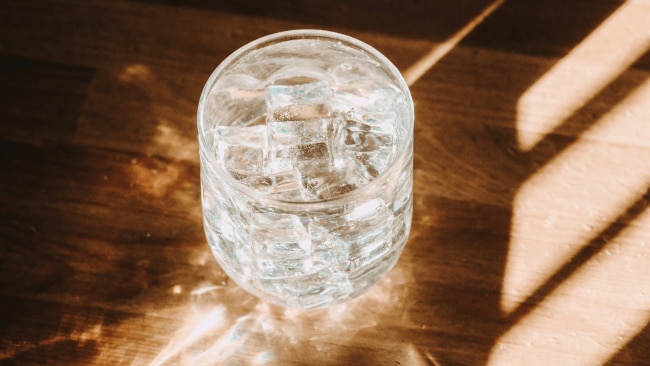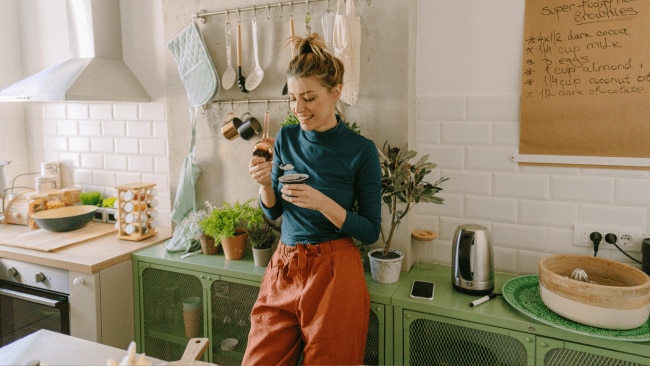Are non-alcoholic drinks actually safe when pregnant or breastfeeding?
Two experts break down the risk
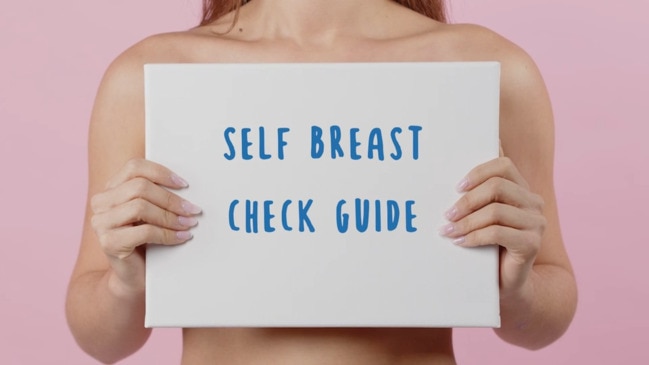
Lifestyle
Don't miss out on the headlines from Lifestyle. Followed categories will be added to My News.
How reliable is the zero per cent label on our favourite non-alcoholic beverage alternatives? For breastfeeding and pregnant women, the health risks associated are hard to ignore.
If someone is avoiding alcohol, they’re no longer limited to tap water, soft drinks, and the kids’ menu. When it comes to subscribing to a sober lifestyle, there’s never been a more inclusive time. Non-alcoholic beverages are available in every bar, stocked in every supermarket aisle, and even listed on the menus of high-end restaurants.
As the beverage industry gears up for another lucrative period of sales ahead of our sunny festive season, the alcohol-free sector is fast becoming a popular choice amongst consumers of all ages. With almost every favourite cocktail, spirit, beer and wine brand now offering a more ‘health-conscious’ and accessible alternative to their famed formulas, pub catch-ups and family barbecues have been given somewhat of a rebrand.
However, according to two specialists in women’s health, a beverage boasting ‘zero alcohol’ on its label shouldn’t be so quickly assumed as a healthier alternative, especially for pregnant or breastfeeding women. Here’s why you should think twice before placing your drink order, and how you can best ensure your choice isn’t soaked with risk.
Like what you see? Sign up to our bodyandsoul.com.au newsletter for more stories like this.
What should pregnant or breastfeeding women be wary of?
Despite lacking alcohol, a substance clinically proven to cause irreversible damage to any growing foetus or nursing baby, Dr Raelia Lew, CREI Fertility Specialist and Director of Women’s Health Melbourne, says we shouldn't immediately categorise zero-alcohol beverages as healthy.
“Every beverage is different, but as a rule, avoidance of excess sugar spikes is better for your health your metabolism and potentially your baby’s as well,” she says, noting that experts hypothesise that a mother’s nutritional status can alter set points for the future metabolism and health of her unborn child.
“Nature did not intend for us to consume beverages that are high in simple sugars or artificial chemicals, and these may not be good for us,” Dr Lew says.
Like any aspect of nutrition during pregnancy, if you’re unclear as to whether a beverage is safe to guzzle down, the specialist recommends asking yourself a simple question: Are my dietary choices directly benefiting me and my child?
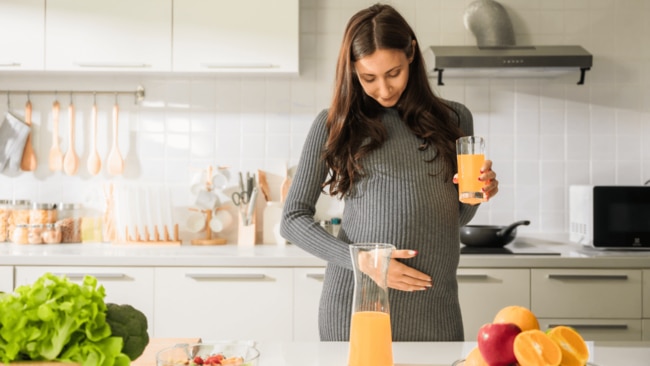
What’s actually in zero-alcohol beverages?
Just as sugar-free or diet alternatives of our favourite soft drinks are packed full of equally nasty ingredients, non-alcoholic beverages are often brimming with nasties. With some 0% brands flawlessly mimicking the taste of their alcoholic predecessors, it’s no surprise the list of ingredients on each bottle looks a little like a chemistry essay.
Wendy Fedele, a specialist dietitian at Women’s Health Melbourne, explains just how troublesome these zero-alcohol formulas can be, especially urging pregnant or breastfeeding women to approach their drink order with caution.
“Many non-alcoholic beverages are produced in the same way as alcohol-containing but have the alcohol removed, this means that there is generally still a very small alcohol content, and some research has found that many of these drinks contain higher levels of ethanol than stated on the bottle,” says Fedele. While these trace amounts are no doubt minuscule, the dietitian notes there is currently no known safe level of alcohol intake for pregnancy.
“That being said, some non-alcoholic beverages are made simply to mimic the flavour of alcohol-containing beverages but never contain any alcohol,” she adds, referencing reliable zero per cent brands such as Non and Seedlip.
While alcohol traces are certainly something to be wary of, the dietitian says the high sugar content of some beverages is a far more sinister threat to your (and your baby’s) health, “Many of these "alcohol-free" drinks contain high amounts of sugar or artificial sweeteners, and some contain caffeine, which should be limited,” says Fedele.
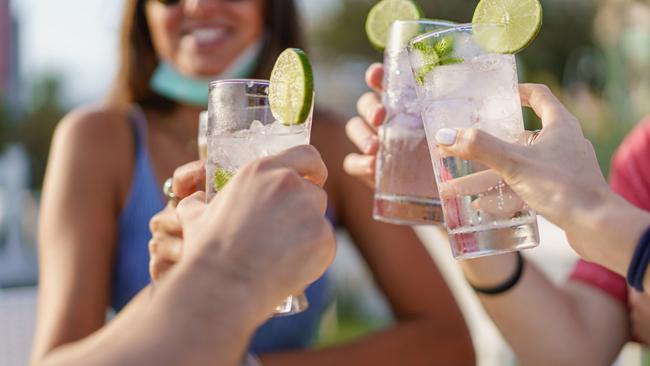
How can you be sure you aren’t exposing your child to risk?
According to the experts, alcohol easily crosses membranes and barriers between mother and child, contaminates breast milk, and potentially injures a baby’s vulnerable developing brain, “There is no way to drink and totally avoid this risk. It is only a few seasons of a mother's life where this is an issue – my advice is to stay hydrated the healthy way, and treat yourself (and let others treat you too) in other ways to compensate,” Dr Lew advises.
While it’s easy to simply recommend sticking to H2O throughout your pregnancy and nursing months, both experts acknowledge this is a pretty unrealistic (and bland) expectation to place on women for such a long period of time.
“Water is obviously the best alternative and it's important that both pregnant people and breastfeeding mothers stay well hydrated, but for something more exciting, sparkling mineral water with a squeeze of lime and mint leaves is a refreshing choice,” says Fedele. “A virgin Mary is another great, low sugar, and nutrient-rich flavourful drink.”
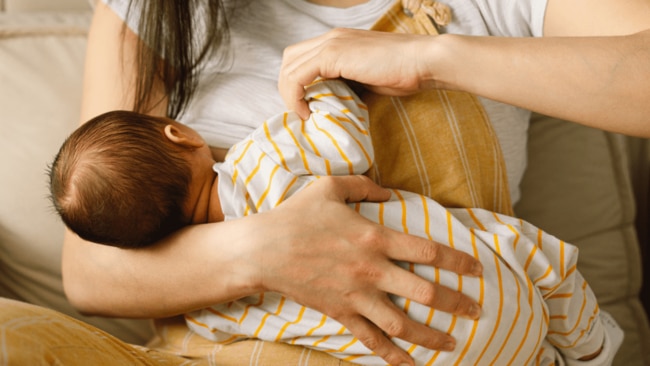
For breastfeeding mothers considering re-introducing alcohol into their lives, the dietitian says it’s important to be hyper-vigilant with your routine, allowing sufficient time for anything problematic to clear from your system before feeding your child.
“If breastfeeding mothers are going to drink they should wait until their blood alcohol level returns to 0, which is when their breast milk should also contain no alcohol,” says Fedele, explaining the process generally takes two hours after each beverage but can vary depending on a woman’s metabolism, tolerance and weight.
“Breastfeeding mothers could also pre-plan and express in advance and store breastmilk to give to their baby if they need to feed when alcohol remains in their system,” she adds.
Both experts recommend breastfeeding mothers avoid alcohol when first establishing breastfeeding for a minimum of four weeks to ensure their baby receives a good supply of milk and can settle into a sleep-wake pattern. If ever unsure, breastfeeding mothers can always refer to the Feedsafe app, developed by The Australian Breastfeeding Association to help mothers determine the safety of their breastmilk.
More Coverage
Originally published as Are non-alcoholic drinks actually safe when pregnant or breastfeeding?



